








The Recovery Team - Delray Beach
This provider's information has been quality-checked by Recovery.com's Research Team for accuracy and completeness, including center verification through appropriate third-party organizations.
Treatment Focus
You can admit to this center with a primary substance use disorder or a primary mental health condition. You'll receive support each step of the way and individualized care catered to your unique situation and diagnosis.
Primary Level of Care
Offering intensive care with 24/7 monitoring, residential treatment is typically 30 days and can cover multiple levels of care. Length can range from 14 to 90 days typically.
Treatment Focus
You can admit to this center with a primary substance use disorder or a primary mental health condition. You'll receive support each step of the way and individualized care catered to your unique situation and diagnosis.
Primary Level of Care
Offering intensive care with 24/7 monitoring, residential treatment is typically 30 days and can cover multiple levels of care. Length can range from 14 to 90 days typically.
Provider's Policy
Through our insurance verification process, we will confirm the specifics of your plan, the types of care covered by your insurance, and any out-of-pocket costs or deductibles you may be responsible for. Our process is entirely confidential and will not have any impact on your insurance, employment, or personal situation.
The Recovery Team - Delray Beach
The Recovery Team - Delray Beach
About The Recovery Team - Delray Beach
The Recovery Team can help clients get their lives back on track. They offer a range of care options for substance use and mental health conditions. Their experts can guide clients through step-down levels of care tailored to their needs and preferences. Residential treatment provides 24/7 care, typically over 30-90 days. Their day treatment offers a similar program, but clients remain home in the evenings. And their IOP is usually 3 hours a day, 5 days per week. They offer specialized programs for professionals, first responders, and veterans.
Address Addiction & Mental Health Together
The Recovery Team uses evidence-based treatment therapies that include individual, family, and group therapy, as well as massage, yoga, and experiential therapies. They treat mental health conditions both as primary concerns and when they co-occur with addiction, recognizing that the two often interact and reinforce each other. By combining medication, therapy, and support services, they address both substance use and mental health conditions to improve treatment outcomes.
Enhance Recovery with TMS Therapy
The Recovery Team believes that transcranial magnetic stimulation (TMS) therapy can be a powerful tool in helping clients recover from addiction and achieve lasting sobriety. TMS is a non-invasive and FDA-approved treatment that uses magnetic fields to stimulate nerve cells in the brain. It is often used to treat mental health disorders, such as depression and anxiety, but has been gaining attention as a treatment option for addiction. It is a painless procedure that does not require sedation or anesthesia. Each session typically lasts for 30-60 minutes, and clients can resume their daily activities immediately after treatment.
Stay Supported After Treatment
The Recovery Team ensures clients receive the best possible care even after leaving the facility. Aftercare plans are specifically tailored to fit the client’s life outside of rehab, and the alumni community is available at no cost. Their team also provides resources like job search assistance, guidance in finding healthy sober-living environments, and more.
Take Advantage of Well-Rounded Amenities
The Recovery Team’s facility in Delray Beach offers a serene and supportive environment for recovery, just 5 minutes from the beach. Residential clients stay in private or shared rooms. Clients enjoy amenities like a swimming pool with lounge chairs, a full gym, and basketball and volleyball courts. Stress relief and physical wellness are prioritized with services like massage therapy, chiropractic care, and yoga. Creative therapies, including art and music, provide outlets for processing emotions, while meditation encourages inner peace. A dedicated nutritionist ensures proper nutrition to support mental health, rounding out a comprehensive approach to relaxation, healing, and recovery.
Highlights from the Center
Highlights
These highlights are provided by and paid for by the center.
Therapeutic Location
Pool
Certified Professionals
Trauma-Informed Care
Center Overview
Treatment Focus
You can admit to this center with a primary substance use disorder or a primary mental health condition. You'll receive support each step of the way and individualized care catered to your unique situation and diagnosis.
Joint Commission Accredited
The Joint Commission accreditation is a voluntary, objective process that evaluates and accredits healthcare organizations (like treatment centers) based on performance standards designed to improve quality and safety for patients. To be accredited means the treatment center has been found to meet the Commission's standards for quality and safety in patient care.
Recently helped 43 people via Recovery.com

Recently helped 43 people via Recovery.com
Insurance Accepted
Recovery.com Verified Listing
Recovery.com verified that the name, location, contact information and license to operate for this treatment provider are valid and up-to-date.

Joint Commission Accredited
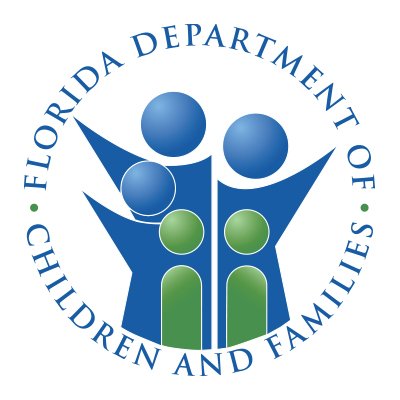
Licensed by the Florida Department of Children and Families
Recovery.com is an independent, third-party mental health resource. Verification does not imply endorsement and does not guarantee the quality of treatment services.
Meet your care team
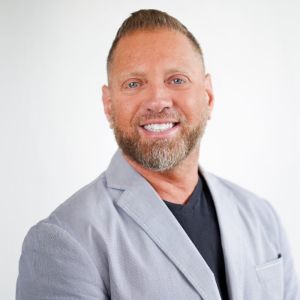
Dr. Sal Raichbach
Chief Clinical Officer
LCSW, PsyD

Diane Dinkens
Clinical Program Director
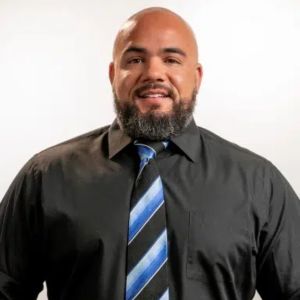
Enrique Ruiz
Director of Nursing
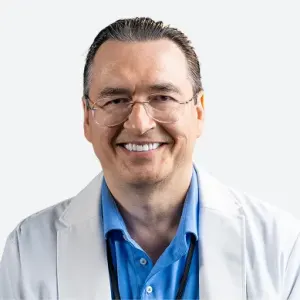
Dr. Rostislav Ignatov
Chief Medical Officer
MD
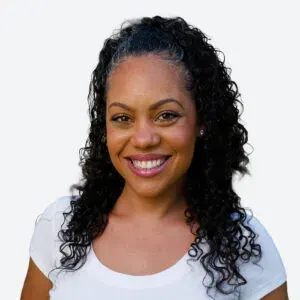
Rahjanni Lusi
Clinical Director
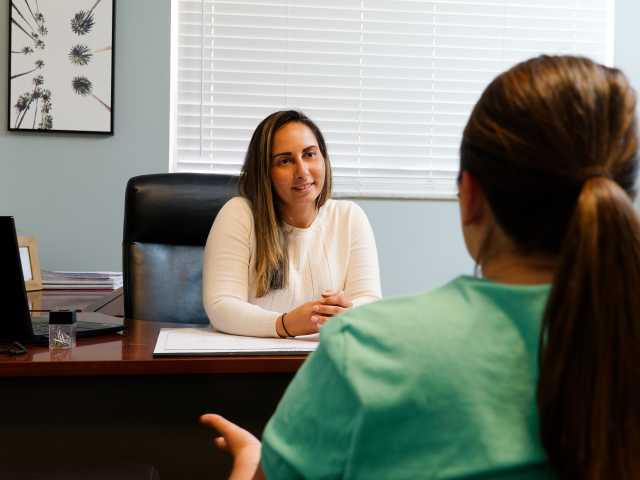

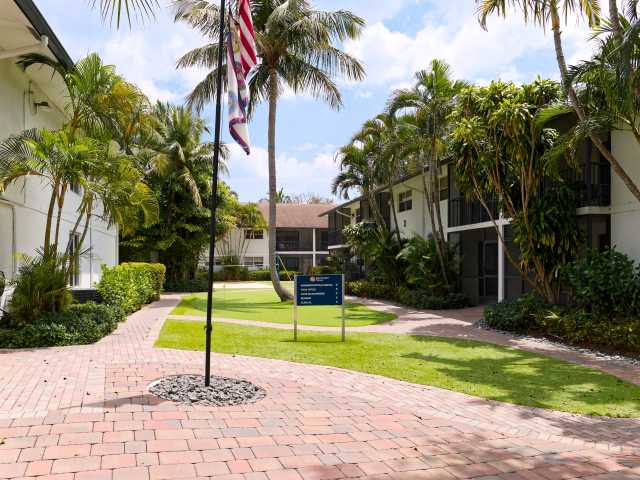
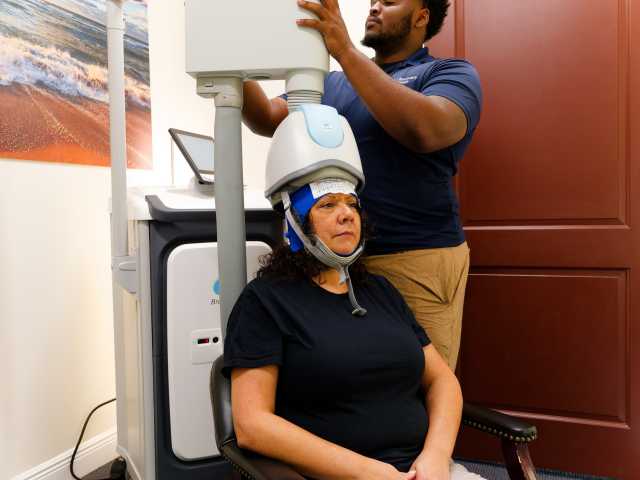
Treatment
Specializations
Veterans
Patients who completed active military duty receive specialized treatment focused on trauma, grief, loss, and finding a new work-life balance.
Anxiety
Anxiety is a common mental health condition that can include excessive worry, panic attacks, physical tension, and increased blood pressure.
Co-Occurring Disorders
A person with multiple mental health diagnoses, such as addiction and depression, has co-occurring disorders also called dual diagnosis.
Drug Addiction
Drug addiction is the excessive and repetitive use of substances, despite harmful consequences to a person's life, health, and relationships.
First Responders Program
Paramedics, police officers, firefighters, and others join in a specific First Responders program, usually focused on trauma, grief, and work-life balance.
Transcranial Magnetic Stimulation
Localized magnetic pulses stimulate areas of the brain to increase brain activity and reduce abnormal functions.
Professionals
Busy, high-ranking professionals get the personalized treatment they need with greater accommodations for work, privacy, and outside communication.
Alcohol
Using alcohol as a coping mechanism, or drinking excessively throughout the week, signals an alcohol use disorder.
Who We Treat
Veterans
Patients who completed active military duty receive specialized treatment focused on trauma, grief, loss, and finding a new work-life balance.
Men and Women
Men and women attend treatment for addiction in a co-ed setting, going to therapy groups together to share experiences, struggles, and successes.
Professionals
Busy, high-ranking professionals get the personalized treatment they need with greater accommodations for work, privacy, and outside communication.
Treatment Services
Transitional Living
After rehab, some people stay in a transitional living situation before returning home. These programs offer structure, education, and community support.
Residential
In a residential rehab program, patients live onsite, with access to daily treatment and 24-hour care. An average stay is 30-90 days.
Outpatient
During outpatient rehab, patients attend a structured treatment program while continuing to live at home.
Day Treatment
In a PHP, patients live at home but follow an intensive schedule of treatment. Most programs require you to be on-site for about 40 hours per week.
Approaches
Spiritual Emphasis
Spirituality connects patients to a higher power and helps strengthen their recovery, hope, and compliance with other treatment modalities.
Holistic
A non-medicinal, wellness-focused approach that aims to align the mind, body, and spirit for deep and lasting healing.
Evidence-Based
A combination of scientifically rooted therapies and treatments make up evidence-based care, defined by their measured and proven results.
Therapies
Spiritual Care
Tending to spiritual health helps treatment become more effective, allowing patients to better cope with their emotions and rebuild their spiritual wellbeing.
1-on-1 Counseling
Patient and therapist meet 1-on-1 to work through difficult emotions and behavioral challenges in a personal, private setting.
Family Therapy
Family therapy addresses group dynamics within a family system, with a focus on improving communication and interrupting unhealthy relationship patterns.
Acceptance and Commitment Therapy (ACT)
This cognitive behavioral therapy teaches patients to accept challenging feelings and make the appropriate changes to reach personal goals.
Psychoeducation
This method combines treatment with education, teaching patients about different paths toward recovery. This empowers them to make more effective decisions.
Motivational Interviewing and Enhancement Therapy (MET)
This approach is based on idea that motivation to change comes from within. Providers use a conversational framework that may help you commit to recovery.
Art Therapy
Visual art invites patients to examine the emotions within their work, focusing on the process of creativity and its gentle therapeutic power.
Meditation & Mindfulness
A practiced state of mind that brings patients to the present. It allows them to become fully aware of themselves, their feelings, and the present moment.
Conditions We Treat
Post Traumatic Stress Disorder
PTSD is a long-term mental health issue caused by a disturbing event or events. Symptoms include anxiety, dissociation, flashbacks, and intrusive thoughts.
Anxiety
Anxiety is a common mental health condition that can include excessive worry, panic attacks, physical tension, and increased blood pressure.
Depression
Symptoms of depression may include fatigue, a sense of numbness, and loss of interest in activities. This condition can range from mild to severe.
Codependency
Codependency is a pattern of emotional dependence and controlling behavior. It's most common among people with addicted loved ones.
Obsessive Compulsive Disorder (OCD)
OCD is characterized by intrusive and distressing thoughts that drive repetitive behaviors. This pattern disrupts daily life and relationships.
Personality Disorders
Personality disorders destabilize the way a person thinks, feels, and behaves. If untreated, they can undermine relationships and lead to severe distress.
Bipolar
This mental health condition is characterized by extreme mood swings between depression, mania, and remission.
Trauma
Some traumatic events are so disturbing that they cause long-term mental health problems. Those ongoing issues can also be referred to as "trauma."
Anger
Although anger itself isn't a disorder, it can get out of hand. If this feeling interferes with your relationships and daily functioning, treatment can help.
Substances We Treat
Cocaine
Cocaine is a stimulant with euphoric effects. Agitation, muscle ticks, psychosis, and heart issues are common symptoms of cocaine abuse.
Prescription Drugs
It's possible to abuse any drug, even prescribed ones. If you crave a medication, or regularly take it more than directed, you may have an addiction.
Ecstasy
Ecstasy is a stimulant that causes intense euphoria and heightened awareness. Abuse of this drug can trigger depression, insomnia, and memory problems.
Co-Occurring Disorders
A person with multiple mental health diagnoses, such as addiction and depression, has co-occurring disorders also called dual diagnosis.
Drug Addiction
Drug addiction is the excessive and repetitive use of substances, despite harmful consequences to a person's life, health, and relationships.
Heroin
Heroin is a highly addictive and illegal opioid. It can cause insomnia, collapsed veins, heart issues, and additional mental health issues.
Methamphetamine
Methamphetamine, or meth, increases energy, agitation, and paranoia. Long-term use can result in severe physical and mental health issues.
Opioids
Opioids produce pain-relief and euphoria, which can lead to addiction. This class of drugs includes prescribed medication and the illegal drug heroin.
Alcohol
Using alcohol as a coping mechanism, or drinking excessively throughout the week, signals an alcohol use disorder.
Languages
Aftercare
Experience
Personal Amenities
Amenities
Special Considerations
First Responders Program
Paramedics, police officers, firefighters, and others join in a specific First Responders program, usually focused on trauma, grief, and work-life balance.
Activities
Yoga
Yoga is both a physical and spiritual practice. It includes a flow of movement, breathing techniques, and meditation.
Off-Site Amenities
Smoking and Vaping Policy

Recently helped 43 people via Recovery.com
Learn More About the Center
Treatment Options for Mental Health Concerns
Discover compassionate and personalized mental health support, innovative therapies, and holistic approaches.
Evidence-Based Treatment for Addiction
Explore evidence-based treatment options for substance use disorders, including therapies like TMS and genetic testing.
Help for Alcohol Addiction
Take the first step toward gaining control over life and breaking free from addiction.
Opioid Addiction Symptoms
Learn about the signs, effects, and treatment for opioid disorder.
What people are saying
We love hearing about your treatment experience
Help individuals and families seeking treatment by sharing your first-hand experience with this treatment provider. Review Guidelines.





